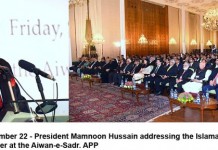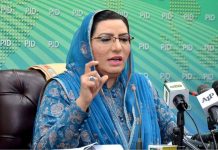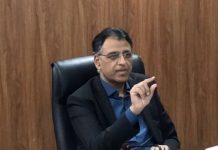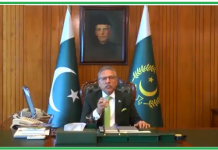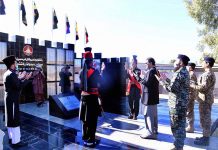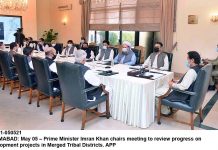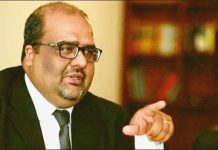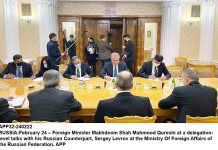ISLAMABAD, Jul 23 (APP):The Senate Standing Committee on Petroleum on Tuesday deliberated on the “Pakistan Minerals Regulatory Authority Bill, 2024.”
The meeting, chaired by Senator Umer Farooq, was informed that the primary objective of the bill is to create cohesion between the federal and provincial governments to fully utilize and transform the potential of the minerals sector into a value-added commodity for the national economy.
Senator Mohammad Abdul Qadir, the bill’s mover, noted that despite the country’s vast mineral reserves, a lack of coordination between federal and provincial governments has hindered their full benefit.
Secretary Petroleum Momin Agha apprised the Committee that the ministry is working on the “Harmonization of Minerals Laws” with the provinces, with the implementation plan expected to be finalized by the end of September 2024.
The Committee was briefed on the roles and functions of the ministry and its attached departments.
Secretary Petroleum Division Momin Agha informed the Committee that thirteen companies fall under the ministry’s ambit.
The ministry’s primary role is to facilitate collaboration between these companies to meet the country’s oil and gas demand and to oversee their affairs, formulating policies for their smooth functioning.
The Committee raised objections over the prolonged vacancy of the Managing Director (MD) position at OGDCL and directed the provision of details on vacant MD and Board of Directors (BoD) positions in these companies.
The Committee was informed about the current usage and demand for oil and gas in the country.
The Director General (DG) Gas reported that the country’s daily consumption of gas and oil is around 3,200 MM CFT and 7,000 million barrels, respectively. However, the total reserves of oil are approximately 192.93 million barrels, and gas reserves are about 18,108.77 BCF.
According to the 2023-24 data (as of May 2024), Sindh holds the highest share of gas at 64%, and Khyber Pakhtunkhwa has a 42% share in oil. Secretary Petroleum Division Momin Agha highlighted that of the total 3,200 MM CFT of gas, 200 MM CFT is used for production, 1,400 MM CFT by fertilizer and power companies, and the remaining 1,600 MM CFT for domestic purposes, making the total available gas 3,000 MM CFT.
The Committee recommended that complete details of gas consumption by provinces relative to their production be submitted at the next meeting.
The Committee also discussed development initiatives undertaken by gas companies to uplift less developed areas adjacent to gas sites.
Officials informed that the ministry has mandated oil and gas companies to spend a minimum of $30,000 on social welfare projects, primarily for clean water, education, and healthcare. The amount allocated for social welfare is directly related to oil and gas reserves.
Senator Umer Farooq directed that details of social work done by oil and gas companies in different parts of the country over the last three years under Corporate Social Responsibility be provided.
The Committee was briefed by the MDs of Sui Southern Gas (SSGPL) and Sui Northern Gas (SNGPL) on their operations and performance.
The MD of SSGPL reported that the primary role of SSGPL is the transmission, distribution, and sale of natural gas, serving approximately 3.2 million customers. He added that SSGPL sources its supply from 11 sites on the left bank of the Indus and 8 sites on the right bank.
However, indigenous gas reserves are depleting by 10% annually. The MD of SNGPL informed the Committee that SNGPL serves 7.4 million customers and earned a profit of around 10.37 billion in 2022 after tax.
The Committee decided to have an exclusive briefing on Reko Diq at the next meeting.
The meeting was attended by Senators Rana Mehmood ul Hassan, Sardar Muhammad Umer Gorgaij, Mir Dostain Khan Domki, Raja Nasir Abbas, Haji Hidayatullah Khan, and Mohammad Abdul Qadir.
مضمون کا ماخذ : ڈاگ ہاؤس
.jpg)

